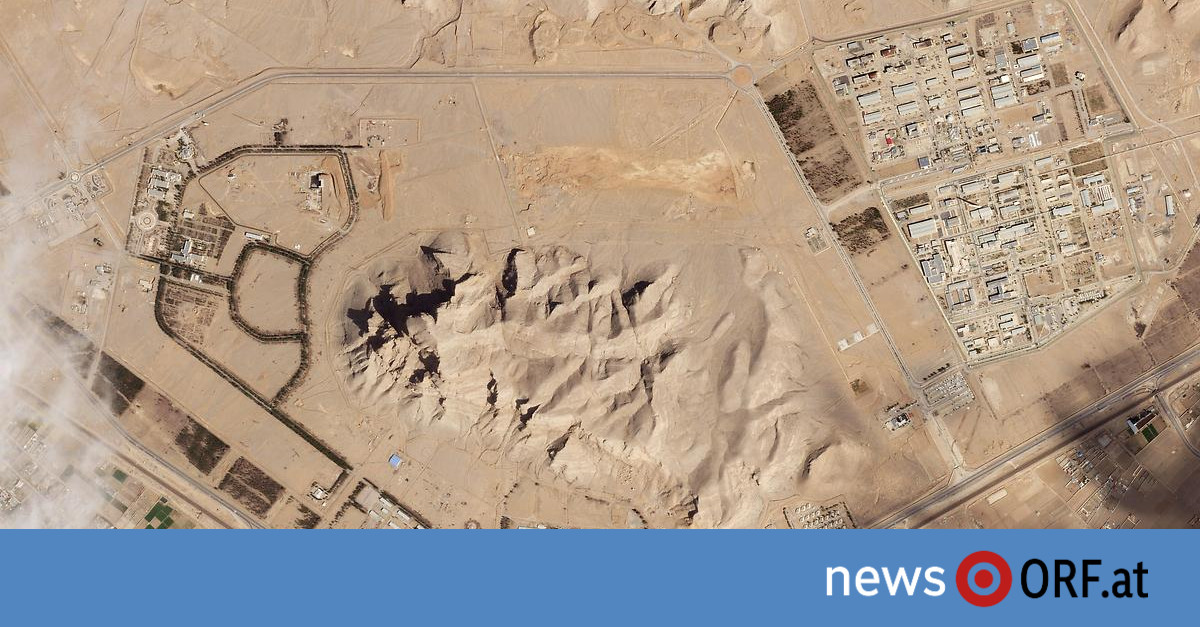Media reported on Friday morning about Israeli attacks on Iranian territory. The action was seen as retaliation for the large-scale Iranian airstrike on Israel last weekend.
According to the Israeli newspaper Jerusalem Post, the attack targeted an air force base in Isfahan, central Iran, not far from Iranian nuclear facilities. According to the International Atomic Energy Agency (IAEA), these were not met.
No comment from Israel yet
Iranian President Ebrahim Raisi made no mention of the attack near the city of Isfahan in a speech on Friday. Iranian state media rejected media reports of a rocket attack. It was simply said that several small flying objects were shot at in the sky over the Iranian province of Isfahan on Friday night.
The US broadcaster ABC News, however, reported, citing an unnamed US representative, that Israeli fighter jets that were outside Iranian airspace had fired three missiles at a radar system that was part of the defense system of the Natans nuclear facility northwest of Isfahan be. It was probably destroyed.
Reports of Israeli attacks in Iran
According to US media reports, Israel has carried out an attack on Iran. Iranian media reported several explosions near an army base in the city of Isfahan. According to Iranian sources, several drones were shot down.
Israel has not yet commented either. U.S. Secretary of State Antony Blinken told a meeting of G-7 foreign ministers in Capri that he would not “elaborate on this other than to say that the United States was not involved in any offensive operations.”
Message: Israel can attack Iran
Reuters, citing an unnamed Iranian regime official, reported that Tehran had no intention of retaliating. A senior Israeli government official told The Washington Post that the attack “was intended to show Iran that Israel can attack its territory.”
debate
Middle East: How can a wildfire be prevented?
Israeli and US analysts expressed similar sentiments. Israeli intelligence expert and former Mossad director Efraim Halevi spoke to the US broadcaster CBS News of an “appropriate reaction”. It is “out of all proportion to the attack we had to deal with a few days ago, but it is enough to send a message to the leadership in Iran,” said Halevi.
CNN military expert Mark MacCarley said: “The Israelis had to retaliate, but that retaliation also carried a message that yes, we can do it. Don’t do that again. If you do it again, chaos will ensue.”
According to US military expert Cedric Leighton, Israel has proven that the Iranian air defense system does not have anywhere near the capabilities of the Israeli air defense system with the action, which was “clearly a direct response to the Iranian attacks over the weekend.”
Major attack on Israel
Over the weekend, Iran directly attacked Israel for the first time with more than 300 missiles and drones. The attack was largely repelled with the help of international allies.
The background to the Iranian missile and drone attacks was a suspected Israeli-led attack on the Iranian embassy compound in the Syrian capital Damascus, in which two generals of the Iranian Revolutionary Guard were killed at the beginning of April.
Tehran then announced retaliation. In recent days, Iran’s military leadership has threatened a decisive response if Israel attacks Iran. Never before have the enemy countries been so close to war.
International concern
According to Italy’s Foreign Minister Antonio Tajani, the recent events in the Middle East also dominated the current G-7 meeting. According to Tajani, the USA confirmed there that they had received last-minute information from Israel about a drone attack in Iran.
“We are committed to Israel’s security,” said US Secretary of State Blinken. Efforts are also being made to de-escalate the situation. Germany’s Chancellor Olaf Scholz also warned against an expansion of the conflict. “Everyone must ensure now and in the near future that there is no further escalation of the war,” he said.
“It is absolutely necessary that the region remains stable and that all sides refrain from further actions,” said EU Commission President Ursula von der Leyen. “It must be clear to everyone: the situation is extremely dangerous. Any further escalation could trigger a chain reaction that no one could then bring under control,” warned Foreign Minister Alexander Schallenberg (ÖVP). The Kremlin called on both sides to exercise restraint. The Egyptian Foreign Ministry said it was “deeply concerned.”
